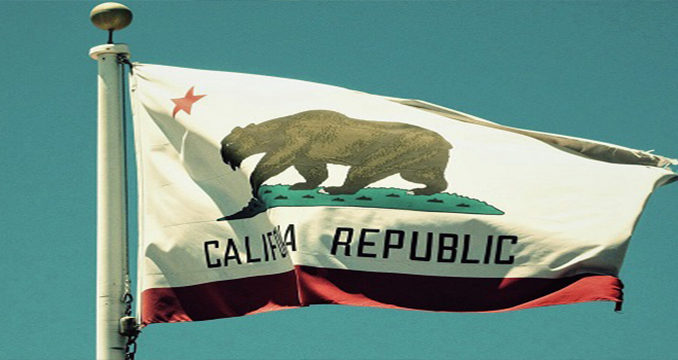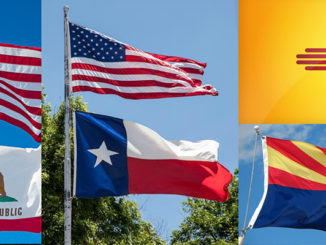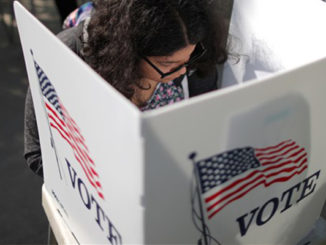
 Americans are closely divided overall, but sharply split along racial, age, class and partisan lines, about immigration’s impact on the nation, according to an exhaustive new study of public opinion.
Americans are closely divided overall, but sharply split along racial, age, class and partisan lines, about immigration’s impact on the nation, according to an exhaustive new study of public opinion.
When asked if “the growing number of newcomers threaten traditional American values,” Americans divided about exactly in half, with 46 percent agreeing and 48 percent disagreeing in the Pew Research Center’s massive 2012 Values Survey released Monday. But that close balance masks large fissures between key groups.
Hispanics, not surprisingly are the least suspicious of the new arrivals: just 29 percent say newcomers threaten American values, while 62 percent disagree. African-Americans, who often express concern in polls about economic competition with immigrants, are the most suspicious: 61 percent say newcomers threaten American values, while 34 percent disagree. Whites divided almost evenly, with 48 percent agreeing that newcomers are a threat and 47 percent disagreeing.
 Pew’s American Values survey is an unusually large poll (it was conducted from April 4-15, 2012, among 3,008 adults nationwide) which tracks the public’s attitude on a wide range of core beliefs, ranging from the role of government to social questions and America’s place in the world. The center has updated the survey 14 times since 1987 providing a long-time gauge of shifts in the bedrock attitudes that shape reaction to campaigns and public policies.
Pew’s American Values survey is an unusually large poll (it was conducted from April 4-15, 2012, among 3,008 adults nationwide) which tracks the public’s attitude on a wide range of core beliefs, ranging from the role of government to social questions and America’s place in the world. The center has updated the survey 14 times since 1987 providing a long-time gauge of shifts in the bedrock attitudes that shape reaction to campaigns and public policies.
As in earlier Pew and Allstate/National Journal Heartland Monitor Polls, the new Pew survey found that white attitudes toward the changing demographic mix can be a powerful predictor of preferences in the presidential race, and the broader issue of Washington’s role in society. The survey found that among registered voters overall Obama led Romney by 49 percent to 45 percent. But in the poll, non-Hispanic whites preferred Romney over Obama by a solid 54 percent to 39 percent. Whites who agreed that more newcomers threaten traditional American values preferred Romney over Obama by fully three-to-one, 69 percent to 23 percent, according to figures provided by Pew’s Michael Dimock and Jocelyn Kiley. But among whites who said that newcomers are not a threat, Obama held a 55 percent to 41 percent lead over Romney.
Obama maintained his narrow overall lead over Romney in the poll by combining those whites open to change with the minorities who embody it. The survey found him winning 95 percent of African-Americans, 67 percent of Hispanics voters and a combined 78 percent of all minority voters. That’s comparable to his 80 percent showing with non-white voters in 2008. That coalition, of minorities and whites receptive to diversity, underscores what veteran Democratic pollster Stanley B. Greenberg told me the day after Obama’s victory in 2008 about the nature of his party’s modern coalition. “The two biggest forces in it,” he said, “are the diverse racial elements and the more upscale professional suburban white elements, who are not only comfortable with that diversity but welcome it.”
 Indeed, in the new Pew Poll, 64 percent of Americans with at least a four year college-degree say that immigrants do not threaten American values, while 53 percent of Americans without a degree say that they do. A solid majority of adults under 50 say newcomers are not a threat; a slight majority of those aged 50-64, and nearly three-fifths of seniors, say that they are. The partisan divide is powerful too. Exactly three-fifths of Republicans say that immigrants are a threat to American values, while nearly three-fifths of Democrats do not. Independents split more closely with 44 percent calling immigrants a threat and 52 percent saying they are not.
Indeed, in the new Pew Poll, 64 percent of Americans with at least a four year college-degree say that immigrants do not threaten American values, while 53 percent of Americans without a degree say that they do. A solid majority of adults under 50 say newcomers are not a threat; a slight majority of those aged 50-64, and nearly three-fifths of seniors, say that they are. The partisan divide is powerful too. Exactly three-fifths of Republicans say that immigrants are a threat to American values, while nearly three-fifths of Democrats do not. Independents split more closely with 44 percent calling immigrants a threat and 52 percent saying they are not.
Combining partisanship and education most vividly captures the centrifugal forces driving apart Democrats and Republicans on immigration-related issues. Among college-educated whites who identify as Democrats-an increasingly central pillar of the party’s coalition-over four-in-five say that the immigrants do not threaten American values. But nearly two-thirds of Republicans without a college degree-an increasingly central pillar of the GOP coalition-do consider immigrants a threat to American traditions.
That overwhelming unease among the blue-collar (and older) white voters central to GOP electoral prospects today represents a huge hurdle for the Republican strategists who want the party to expand its Hispanic outreach. Like other polls, a series of other questions in the new Pew survey found that the whites most skeptical about immigration are also the more resistant to government activism than whites comfortable with the racial change. In all these ways, attitudes about the nation’s propulsive demographic change are reinforcing the more familiar ideological divides over social issues and the role of government that define the two parties’ diverging electoral coalitions.
Read the complete Pew Report here>>



